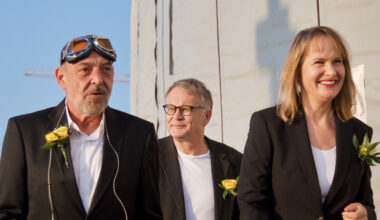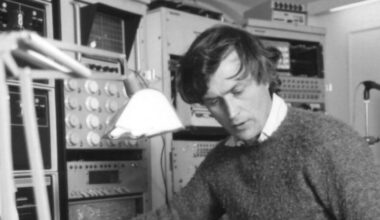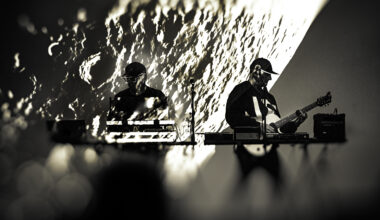From lauded jazz hopefuls to immersive electronica trailblazers, the release of their ‘Living Fields’ album means Portico’s remarkable transformation is finally complete
“When I was getting into sampling the hang drum, I remember figuring out loads of shit, putting it on a drum pad and showing it to Nick as a sort of sound that could be really cool. On reflection, I guess that was…”
Turkeys voting for Christmas? Portico’s Duncan Bellamy trails off and you can almost hear the penny drop.
Coming to prominence in 2007 with their Mercury Prize-nominated future-jazz debut album ‘Knee-Deep In The North Sea’, London-based Portico Quartet were quite the prospect. Almost overnight, Duncan Bellamy, Milo Fitzpatrick, Jack Wyllie and the aforementioned Nick Mulvey were hailed as the next big thing in contemporary jazz, their status cemented by two further critically acclaimed albums, 2009’s ‘Isla’ and 2012’s self-titled offering.
“There were definitely some points after we’d finished making ‘Isla’ where we started getting interested in how far we could take the band’s sound,” says Milo Fitzpatrick. “A lot of that involved being more electronic and I think Nick literally felt drowned out. He was first and foremost a singer-songwriter. He was always practising and bringing his guitar on tour, honing his own thing all along. So when he told us he was leaving, we weren’t really surprised.”
Wind forward to 2015 and Portico are the embodiment of change, of what it means to genuinely evolve. By the time Keir Vine, Nick Mulvey’s successor, decided to move on last year, the remaining trio were increasingly dissatisfied by the music they were making. These days, reinvented and rejuvenated, they find themselves freshly signed to visionary independent Ninja Tune with a new album, ‘Living Fields’, under their belts.
Much like Ninja Tune, which has cannily morphed into a mélange of 21st century post-rap splinters and offshoots, Portico’s own dramatic metamorphosis finds them a world,nay a universe, away from their previous work as Portico Quartet. Jazz of any form this most definitely is not.
“We said that if we were going to do another album, we should do it differently from the outset,” says Fitzpatrick. “From how we react to each other, to how we go into a room and start listening to each other’s ideas, even those very basic ideas of just communicating about music. We said, ‘Let’s just flip it all on its head and see what happens’.”
There was also a crucial change of identity that saw them drop the “Quartet” from their name – to do away with the old and symbolise new beginnings – while retaining “Portico” as what Fitzpatrick calls an “acknowledgment of our chemistry”.
“It’s the first album we’ve completely produced ourselves,” says Bellamy. “We bought more gear for the studio and started layering things up, making sketches, then fleshing them out. Barely any of it was recorded live, so the process was completely different.”
“The production suite was like an instrument in itself and we all had to learn to play it together,” says Fitzpatrick. “We would be editing each other’s parts, drastically changing each other’s work, then someone would come back and go, ‘What the fuck have you done?’. We were really critical of how the music would be received and wanted to make it interesting and cinematic, to have stuff that swirled around you like a 3D audio film.”
The result is an astonishing volte-face. ‘Living Fields’ is an atmospheric, intimate and immersive record, steeped in a woozy fusion of the ethereal and celestial, of shimmering synth arpeggios and spectral textures, teetering somewhere between nearly-pop and beatific ambient decay. Both achingly melancholic and blissfully euphoric, the band have described the album as “existing on the point of breaking up and falling apart”. Inspiration for the change has evidently come from some interesting sources.
“There are lots of ambient influences on there – Brian Eno, William Basinski and Tim Hecker – and also sound artists like Oneohtrix Point Never’s Dan Lopatin,” says Fitzpatrick. “My friend Matt Hayward [drummer for Band Of Skulls] doesn’t listen to anything while they’re writing, he puts his record collection away. It makes sense, as it can stifle your playing or influence it too much, so you kind of starve yourself.”
“I went through a bit of a black hole with music while we were making the album,” admits Bellamy. “In some ways it was nice, but I feel like I missed out a bit – nothing really stands out from last year. Since we finished the record, I have started listening to music again.” The big difference between then and now is the addition of vocalists across the board.
“Jack [Wyllie] would probably say we’ve always tried to write pop music,” notes Fitzpatrick. “I believe we still use the same constructs, but we started thinking about doing something with vocals. We felt we had to have something that binds everything together, otherwise it would be too loose and it wouldn’t be strong enough a statement from us to do a massive U-turn and come out with a vocal album.”
The Portico guys share personal connections with the three distinctive vocal collaborators on ‘Living Fields’: alt-J’s Joe Newman, a childhood friend of Wyllie’s; Jamie Woon, who the band used to share a house with in East London; and Jono McCleery, who has previously supported Portico Quartet on tour and was originally introduced to them by Woon. All of them are shoo-ins for the album’s keening electronic timbres, with sweet, florid voices that swoop and soar over the top of the undulating, opiate-like music.
“We would essentially write a backing track, then break it down and strip it back, and give each singer really basic stuff to work with,” explains Fitzpatrick. “Sometimes it was just a chord sequence with no drums or bass. We learnt that you get a lot more from people that way. If you’re too prescriptive with the track, singers start to feel cornered, and they’re not as expressive. Sometimes we’d send a track to all three of them and none of them would like it!”

Capitalising on those personal links, ‘Living Fields’ feels like a very intimate record. Lyrically, it’s bound by a concept that centres around life and death. The band sent poems and pictures to the three vocalists and asked them to get into the zone by watching an award-winning Chilean documentary entitled ‘Nostalgia For The Light’ before writing their lyrics.
“Arranging it wasn’t that difficult,” says Fitzpatrick. “What was hard was the whole idea of the weight that words have on something you make. We just thought the film had so much in it, and we loved the themes, so we just sent it to them. There were bits about the search for identity, the significance of memory, staring death in the face – all topics we’d been thinking about for the album.”
The result is heartfelt and profoundly emotional, a testament to Portico’s successful working process. But is ‘Living Fields’ the album they envisaged?
“The reason for doing this album was because we wanted to do something different and we didn’t want to feel shackled,” declares Bellamy. “We are the same band, but we’re also not. Maybe it’s just that the anchor points have changed.”
“It takes a while to find your sonic identity with each new record,” says Fitzpatrick. “You experiment with different styles – things sound derivative, they sound like your old stuff, you go through highs and lows, and you think, ‘Shit, are we going to be able to strike it again?’. And then you just find a corner and – bazoom! – it’s ‘go, go, go’ while it’s feeling good. Even now, it’s still crystallising, we’re still trying to figure out what it is. But more than any other record we’ve made, this one feels like an album to be really listened to and taken on board.”
“We spent a year pretty much just fucking around,” admits Bellamy. “We had a year of false starts, trying to arrive somewhere, but not quite getting there. Having that time where we let things stew and digest, I think we worked out a lot of the stuff we didn’t want to do, which kind of pushed us forward.”
Get the print magazine bundled with limited edition, exclusive vinyl releases

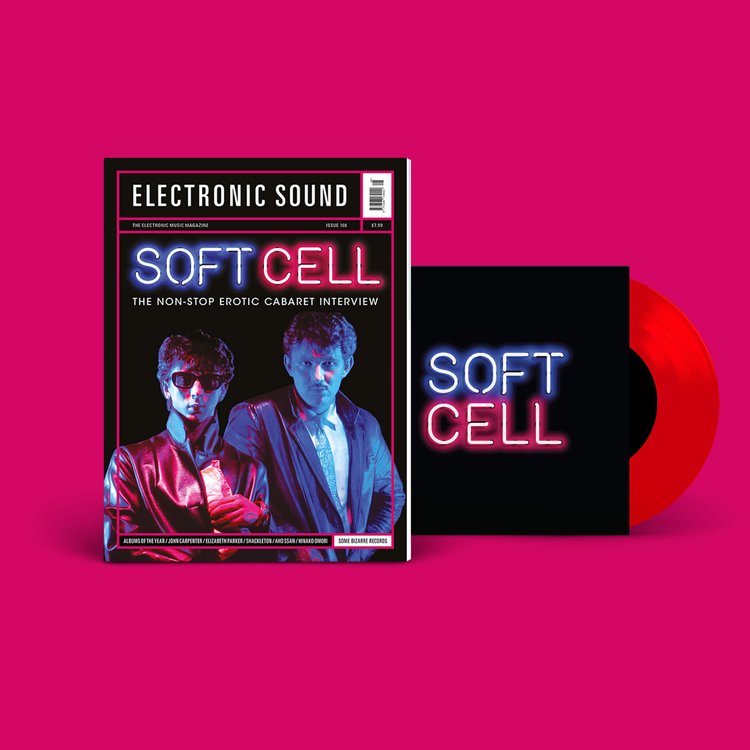
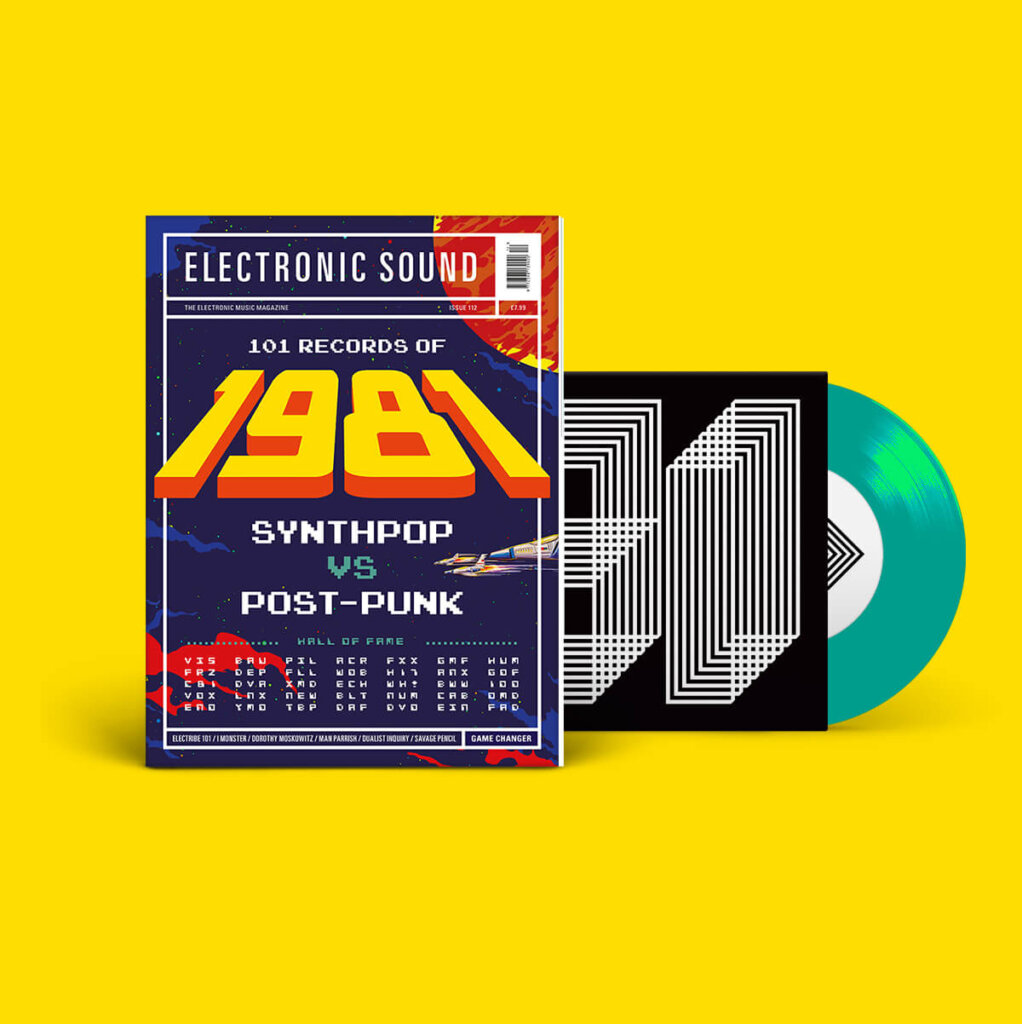
So was there a moment where they felt they’d nailed it?
“You maybe have one or two songs that you’re vaguely happy with, then suddenly you get some momentum and you’re happy with four or five and it starts to coalesce a bit,” says Bellamy. “You start to get more of a glimpse of what it could be and that gives you a real sense of purpose.”
“I think the title track was where we thought, ‘There’s a certain depth here’,” muses Fitzpatrick. “It meanders around and feels like you’ve actually been somewhere. That was the point where we thought, ‘There’s something in here, we should keep digging’.”
‘Living Fields’ hangs together wonderfully well. As a result, it feels special, a rare thing of unadulterated beauty. Which kind of begs an obvious question – why didn’t they do this sooner?
“I think we could have probably done it before,” says Fitzpatrick. “I think if you’d just thrown us in there and said, ‘Do a vocal album’, we could have pulled something out, but I don’t think it would have been thought out enough.”
Did they ever feel like they were taking a gamble by changing their sound?
“We’re still in that frame of mind where we’re wondering, ‘Is it gonna work?’,” admits Fitzpatrick.
“We still haven’t worked out the extent to which we’re not the same band anymore,” adds Bellamy. “People who don’t like it are confused because they just think we’ve changed a lot, whereas in some ways it’s like more of a debut.”
So what of the future? Is there a plan or a vision for how Portico might evolve further?
“In terms of the music, we’ve got a good template now,” says Bellamy. “This album has given us a lot of confidence, and the capacity to know that, not only can we come up with ideas and use the equipment, but also to lay it down, mix it and deliver it right to the end. I think having that control over the music is really important.”
Hang The DJ
Sounding not unlike a steel pan, a hang is a UFO-looking drum made up of two half shells of steel sheeting, joined to make a hollow construction and played with the hands. As they had one, it quickly became the centrepiece of every Portico Quartet interview and review.
“And we’re still talking about it!” laughs Duncan Bellamy. “What’s easy to forget is that we started the band eight or nine years ago. It was a really long time ago. We’d all just moved to London and we were totally different people. When I look back on it, it feels like a distant memory. Your tastes and your views change over time, and the things that interest you and inspire change too. We’re immensely proud of those early Portico Quartet albums, but I don’t feel that attached to them. Where we’re at now feels very different.”
‘Living Fields’ is out on Ninja Tune


